David Aikman
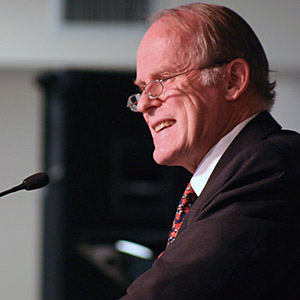
davidaikman.com
“…a significant number of distinguished scholars take the view that the doctrines of the Local Church do in fact coincide with historic Trinitarian Christianity.”
As a long-time observer and reporter on the Christian church in China, I have been familiar with the persecution suffered in China by members of the Local Church, sometimes labeled by the pejorative term, “Shouters.” Living Stream Ministry, which represents the Local Church in the US, has performed an excellent job bringing together theologians and historians to analyze closely the specific teachings sometimes attributed to the late Witness Lee of the Local Church. It is now apparent that a significant number of distinguished scholars take the view that the doctrines of the Local Church do in fact coincide with historic Trinitarian Christianity. I am very glad that the label of “heretic” is no longer being pinned on this fine group of believers.
John H. Armstrong

act3network.com
johnharmstrong.com
“…do not believe a testimony against any other Christian teacher or group until you have carefully heard the whole matter and weighed the preponderance of evidence.”
Almost a decade ago I became aware of numerous accusations circulating against Living Stream Ministry (LSM), especially against the teaching of the late Witness Lee and Watchman Nee. At the time I only knew about Watchman Nee, most of which was based upon his popular books on living in Christ. I profited from Nee’s work as a college student in the late 1960s. But the conversation I heard around 2000 was influenced by evangelicals I deeply respected.
These accusations made me very cautious about LSM and the writings of these two Chinese Christian teachers. I assumed that the work of LSM was at best unhelpful and, at worst, profoundly dangerous. At that time I did not bother to carefully study the charges against LSM or the answers they offered to these charges. I would eventually learn a great deal from how this impacted my life over the ensuing decade. One example stands out to this day–do not believe a testimony against any other Christian teacher or group until you have carefully heard the whole matter and weighed the preponderance of evidence.
I made a choice, knowing full well that I could be misunderstood, to sit down and listen to some of the brothers from LSM. I began to carefully read the interchanges between supporters and critics alike. I studied a good deal of evidence, especially as it related to the core doctrines of Christ’s two natures and the holy Trinity. I found nothing against LSM that was not satisfied by careful study of their doctrine. I also came to love many of the brothers from LSM that I spent time with in conversation and prayer. This has led me to continue to listen to and study this dialogue.
My conclusion is simple and straightforward–LSM is not guilty of denying any essential Christian truth that is a basic part of historical orthodoxy. While I have minor reservations about some of LSM’s ecclesiological conclusions I do not think these rise to the level of false teaching. For me these differences provide a basis for ongoing dialogue in the love of Christ.
I have come to see that these brothers deeply love the church. Their practices make some American Christians uncomfortable. I believe American Christians, in general, should be more uncomfortable with their easy-going, deeply individualistic relationship with the body of Christ. Given the need for genuine contextualization there is still work to be done but I am confident that LSM is not denying anything essential to following Jesus Christ in faith, hope and love.
Tom Ascol
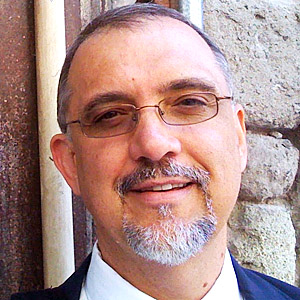
founders.org
theblog.founders.org
“…I have been blessed and challenged by their humble devotion to our Lord…”
The “Open Letter from the Local Churches and Living Stream Ministry” includes a statement of their orthodox, evangelical beliefs that should be welcomed by all who love the Lord Jesus and who affirm the full authority of the written Word of God. As I have grown to know some of the brethren in this movement and have worshiped with them in several of their Chinese churches I have been blessed and challenged by their humble devotion to our Lord and commitment to the work of making disciples. May the Lord continue to bless and use them in the extension of His kingdom throughout the world.
Randall Balmer
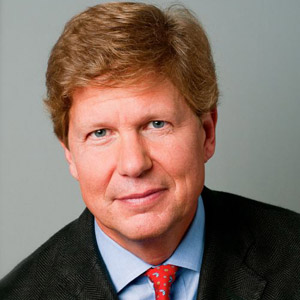
religion.dartmouth.edu/people/randall-balmer
“I was impressed by the interracial character of the congregation…”
When I visited the Local Church in Newington, Connecticut, I found there a worship service that I would characterize as informal, good-humored, joyful, and friendly – with slight Pentecostal overtones. In the low-keyed style of worship, I found elements of the house churches that were popular among many evangelicals in the 1970s. Members of the congregation addressed one another as ‘Brother’ or ‘Sister,’ a fairly common practice in evangelical circles. I was impressed by the interracial character of the congregation and the ease with which Anglos, Asians, and African Americans related with one another (this is still fairly rare among evangelicals – as it is rare among other religious groups in America).
Paul Copan
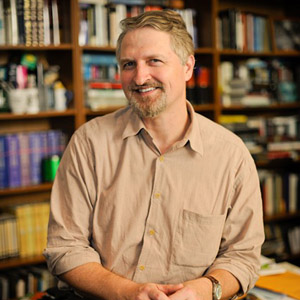
paulcopan.com
“I …urge all true Christians to embrace our brothers and sisters in the Local Church, who share the same faith in our Lord Jesus Christ.”
The doctrinal statement of the Local Church and LSM reflects a clear commitment to the fundamental tenets of Christian orthodoxy. In a remarkable spirit of humility, the Local Church has taken great pains to clarify and refine this statement through prayer and conversation with fellow evangelicals. I commend this gracious spirit and urge all true Christians to embrace our brothers and sisters in the Local Church, who share the same faith in our Lord Jesus Christ. Indeed, it is incumbent upon all believers to work through misunderstandings and misrepresentations of one another so that that we may serve together as partners in the gospel.
Fuller Theological Seminary

“In regard to their teaching and testimony concerning God, the Trinity, the person and work of Christ, the Bible, salvation, and the oneness and unity of the Church, the Body of Christ, we found them to be unequivocally orthodox.”
The Seminary’s panel consisted of:
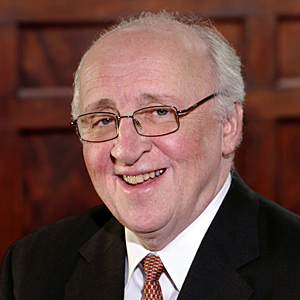
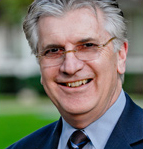
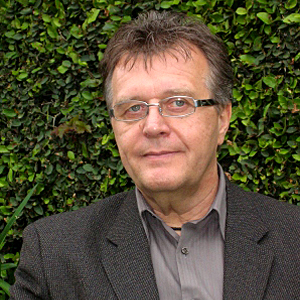
Excerpt:
“It is the conclusion of Fuller Theological Seminary that the teachings and practices of the local churches and its members represent the genuine, historical, biblical Christian faith in every essential aspect.
One of the initial tasks facing Fuller was to determine if the portrayal of the ministry typically presented by its critics accurately reflects the teachings of the ministry. On this point we have found a great disparity between the perceptions that have been generated in some circles concerning the teachings of Watchman Nee and Witness Lee and the actual teachings found in their writings. Particularly, the teachings of Witness Lee have been grossly misrepresented and therefore most frequently misunderstood in the general Christian community, especially among those who classify themselves as evangelicals. We consistently discovered that when examined fairly in the light of scripture and church history, the actual teachings in question have significant biblical and historical credence. Therefore, we believe that they deserve the attention and consideration of the entire Body of Christ.
In regard to their teaching and testimony concerning God, the Trinity, the person and work of Christ, the Bible, salvation, and the oneness and unity of the Church, the Body of Christ, we found them to be unequivocally orthodox. Furthermore, we found their profession of faith to be consistent with the major creeds, even though their profession is not creedal in format… Consequently, we are easily and comfortably able to receive them as genuine believers and fellow members of the Body of Christ, and we unreservedly recommend that all Christian believers likewise extend to them the right hand of fellowship.”
Read the full statement (PDF):
Edwin S. Gaustad
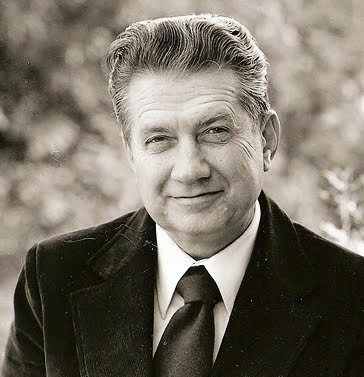
“I conclude that the Local Church stands in the tradition of evangelical Christianity…”
From my observation, I conclude that the Local Church stands in the tradition of evangelical Christianity, of the Protestant emphasis on biblical authority, of the great Christian mystics’ and pietists’ concern for the inner life, of the millennia-old expectation of a new age, and of born-again, experiential religion. They meet together, pray together, sing and study together, and grow together. They labor to be loyal to their particular vision of the Christian life. It seems enough. (The Experts Speak Concerning Witness Lee and the Local Churches, p. 200)
Eugene Van Ness Goetchius
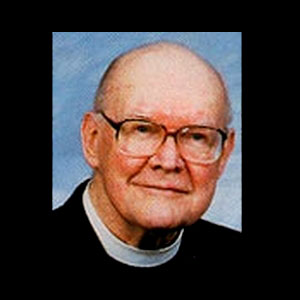
“…their doctrine of ‘locality’ makes them a witness to a genuine Christian ideal: the unity of Christendom.”
I went out to a meeting of the church in Newton and heard Witness Lee in person. I met him, and we had a very brief correspondence, because I thought that his presentation that night, which lasted a couple of hours, was a very concise presentation of the Christian faith, or as represented by the Bible. He traced right straight through… (The Experts Speak Concerning Witness Lee and the Local Churches, p. 112)
The “locality” teaching does have real value, however, for every ecumenically inclined Christian will admit that there ought to be only one church in each city—not a single congregation, perhaps, for that could be unwieldy—but one body of Christians sharing one hope and one faith and one Lord, one God (cf. Ephesians 4:4ff). The Local Churches may seem to be, and may develop into, “just another denomination”; but their doctrine of “locality” makes them a witness to a genuine Christian ideal: the unity of Christendom. (The Experts Speak Concerning Witness Lee and the Local Churches, p. 126)
Hank Hanegraaff
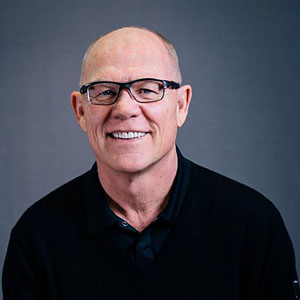
equip.org
equip.org/localchurch
“…the local churches are an authentic expression of New Testament Christianity…”
The local churches are an authentic expression of New Testament Christianity. Moreover, as a group forged in the cauldron of persecution, it has much to offer Western Christianity. In this respect three things immediately come to mind.
First is their practice of prophesying—not in the sense of foretelling the future but in the 1 Corinthians 14 sense of exhorting, edifying, encouraging, educating, equipping, and explicating Scripture. In such a practice, constituents are corporately involved in worship through the Word. Second is their practice of pray-reading (in addition to Bible study) as a meaningful link between the intake of Scripture and efficacious communion with God in prayer. And third is their fervent commitment to the Great Commission (Matthew 28:19).
If the early Christian church had one distinguishing characteristic, it was their passion to communicate the love, joy, and peace that only Jesus Christ can bring to the human heart. As we become entrenched in an age of esotericism, it is essential that genuine believers in all walks of life emulate this passion—a passion I have personally witnessed as I shared in fellowship with brothers and sisters in Christ from local churches in places as far away as London, England; Seoul, Korea; and Nanjing, China.
In sum, along with Christians from a broad range of persuasions, the local churches are dedicated to both proper doctrine (orthodoxy) and proper practice (orthopraxy). As such, they march by the maxim, “In essentials unity, in non-essentials liberty, and in all things charity.” While we will no doubt continue to debate secondary issues this side of the veil, I have no doubt that we will spend an eternity together growing in the knowledge of the One who saved us by faith alone, through grace alone, on account of Christ alone.
Videos:
Hank Hanegraaff speaks on Watchman Nee’s impact on the Western World
CRI reviews the local churches in detail: A playlist of 17 short videos.
Jerry Johnson

facebook.com/nicenecouncilcom
“As a signer of the Open Letter to the Local Churches, I can say without reservation that the Statement of Faith published on the website an-open-letter.org is one all Bible-believing Christians can and should embrace.”
As a signer of the Open Letter to the Local Churches, I can say without reservation that the Statement of Faith published on the website an-open-letter.org is one all Bible-believing Christians can and should embrace. This is not to say that I agree with all of the teaching of the local churches on nonessential points of doctrine. I look forward to more times of dialogue with them to build greater mutual understanding.On a more personal note, I have met and had fellowship with many members of the local churches in China and the United States, and I fully embrace them as my brothers and sisters in Christ.
Peter Kerridge

www.premier.org.uk
premier.org.uk bio
“This ministry is entirely orthodox and to suggest otherwise is to willfully misrepresent them and impede the church’s mission.”
Watchman Nee was the John Wesley of China. His legacy continues to thrive today as millions of people on the mainland of China find faith in our Lord Jesus Christ. Witness Lee, his coworker, continued that legacy and broadened it to encompass the West and all six continents. Living Stream Ministry is the faithful custodian of their vision and strives to make Jesus known in a way that upholds their worldview and passion for the Gospel. This ministry is entirely orthodox and to suggest otherwise is to willfully misrepresent them and impede the church’s mission. While clearly influenced by early Christian Brethren teaching as well as the profound “inner-life” tradition of early 20th century Great Britain, today their ministry transcends any singular context, whether Eastern or Western, and is finding a fresh renewal of popularity and interest around the globe.
Peter Kuzmic
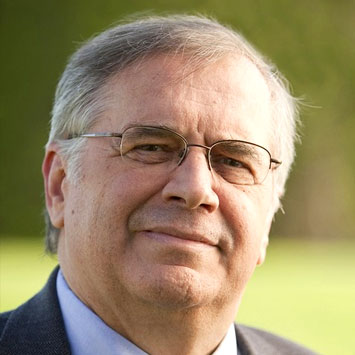
gordonconwell.edu/academics/view-faculty-member.cfm?faculty_id=57845&grp_id=8947
“…the larger evangelical community in this country and elsewhere will come to realize that your cause is right…”
I read very carefully the document [An Open Letter from Living Stream Ministry and the Local Churches] and continue to pray that the larger evangelical community in this country and elsewhere will come to realize that your cause is right, and that the deep biblical commitments and Christian orthodoxy of our influential Chinese brothers/teachers [Watchman Nee and Witness Lee] should be appreciated rather than maligned.
J. Gordon Melton
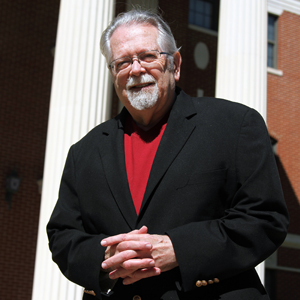
baylorisr.org/about-isr/j-gordon-melton
“I personally have been unable to find a single point upon which it [the teaching in the local churches] deviates on any essential doctrine of the Christian faith…”
I personally have been unable to find a single point upon which it [the teaching in the local churches] deviates on any essential doctrine of the Christian faith, though it has a number of differences on matters all of us would consider nonessential, i.e., doctrinal concerns upon which Christians can disagree without reading each other out of the Christian community, in particular, ecclesiology and piety.
Elliot Miller

“…I find it [the statement of faith on this site] to be thoroughly consistent with historic, orthodox Christian theology in all of its affirmations.”
I have read the brief statement of faith that the “local churches” and Living Stream Ministry (LSM) have prepared for this response to the “Open Letter to the Leadership of Living Stream Ministry and the ‘Local Churches’” published in 2007. I find it to be thoroughly consistent with historic, orthodox Christian theology in all of its affirmations. Indeed, it is far more explicit and astute in its orthodoxy than what one normally encounters in statements of faith.
Apart from its precision, the only affirmation that sets the statement of faith apart from others is its assertion that the universal church or body of Christ “is manifested in time and space in local churches, each of which includes all the believers in a given city, regardless of where they meet or how they may otherwise identify themselves (1 Cor. 1:2; 1 Thes. 1:1; Rev. 1:11)”; but there is nothing unorthodox about this assertion, and, in fact, it could be argued that it is a profoundly biblical truth in much need of consideration by Christians today.
I have written an in-depth critique of the 2007 Open Letter that is available at equip.org/christian-research-journal/we-were-wrong-2
Videos:
CRI reviews the local churches in detail: A playlist of 17 short videos.
John Morehead
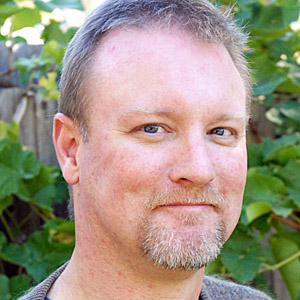
wiics.org/about/staff
johnwmorehead.blogspot.com
“…those considering Living Stream Ministry are encouraged to listen to the organization and its members on their own terms… When this is done, the inquirer will have a rewarding experience in their encounter with the members of Living Stream Ministry.”
For many years various evangelical counter-cult organizations and individuals have contributed helpful warnings to the church in regards to doctrinal teachings and worldviews that are incompatible with Christianity. Along the way various groups have been labeled “cultic” or “heterodox,” and while evangelicals should always be concerned about sound teaching, they should also be open to the reassessment of their views as religious groups change over time, and also in light of the possibility that former assessments may not have been accurate.
In the past serious concerns were expressed about the doctrine of Living Stream Ministry and the local churches. However, with a fresh assessment came new conclusions, and a group of evangelical scholars and ministry professionals have classified Living Stream Ministry as an orthodox group. While some in the evangelical counter-cult community may disagree, they are not the only viable voice in evangelicalism on such matters.
In fact, in recent years an internal critique has taken place in regards to counter-cult methodology. There are concerns that its weaknesses in analysis, in terms of its emphasis on worldview definition and boundary maintenance via apologetics, can at times lead to misunderstandings of various new religious movements and minority religions.
For these reasons, those considering Living Stream Ministry are encouraged to listen to the organization and its members on their own terms as they understand themselves through their doctrinal formulations and other articulations of their faith and practice. When this is done, the inquirer will have a rewarding experience in their encounter with the members of the local churches and Living Stream Ministry.
Timothy O’Fallon
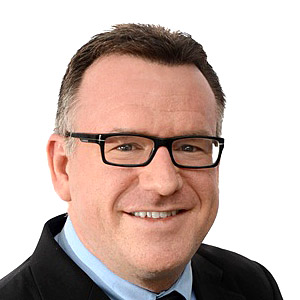
countryside.cc
“Like many believers, I have had the privilege of reading Watchman Nee’s The Normal Christian Life…”
Like many believers, I have had the privilege of reading Watchman Nee’s The Normal Christian Life more than once. Eventually I ‘got’ it, and my understanding of how a Christian ought to live was forever and radically transformed. But I often wondered what it would be like to see Nee’s exposition put into actual practice in the Body of Christ. What would it be like? What would it be like to see “normal Christians” who really experienced Christ daily and through whom Christ could be daily seen? What would it be like to see men and women who no longer try to “produce fruit or concentrate on the fruit produced” in their own soulish power, but who instead live a life of turning their attention to Christ, and who by active surrender enjoy Christ living through them? I thought many times that this would be a glorious thing to behold. And then one day I met the believers of the local churches. I no longer ask the question ‘what would it be like…?’ I know what it is like. I have met such people. And it is glorious indeed.
Gretchen Passantino-Coburn
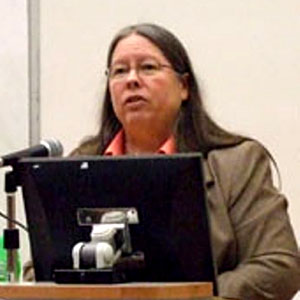
answers.org
“…the brothers and sisters associated with Witness Lee and Living Stream Ministry are our brothers and sisters in Christ…”
I am among a very small group of experts on the controversy regarding the teachings and practices of LSM and associated churches and individuals who have carefully studied its theology over a broad chronological span of publication and practice. To the best of my knowledge, the Christian Research Institute, Fuller Theological Seminary, and Answers In Action are the only American organizations with this track record. CRI, Fuller, and AIA have all concluded that previous determinations of heresy (including ours) lodged against LSM and associates on essential Christian doctrine were in error and that LSM and associates are fully within orthodox Christian biblical theology in all areas of essential belief and practice.
A number of mostly American cult theology experts immediately and completely rejected our re-assessment of the orthodoxy of LSM and associates, using as their basis the work done in the 1970s and 1980s which we believed our more recent re-evaluation had exposed as inadequate and in error (even our own previous work). Most of these experts had done no original research at any time on the teachings and practices of LSM and associates. None had conducted contemporary comprehensive re-evaluation and research. This rejection was summarized in an “Open Letter” (2007) that repeated the early criticisms and failed to produce any new criticisms as well as failed to present any new research or evaluation. Many well respected Christian leaders were persuaded to sign in support of this “Open Letter,” although the vast majority of signers had never researched or evaluated the LSM and associates teachings for themselves.
I am confident that my re-evaluation of the teachings of Witness Lee, LSM, and the churches and individuals associated with them, and of the practices of the churches associated with LSM, demonstrates clearly that they are orthodox in all areas of essential Christian doctrine and practice, validly expressing the Body of Christ as do all orthodox Christians. I attribute my previous erroneous evaluation to a variety of unwitting misunderstandings and misinterpretations of LSM material on my part and unwitting miscommunication of LSM teachings and LSM misunderstandings of American evangelical theology. By taking the time and effort to carefully re-evaluate what we had researched before, to interact repeatedly and in-depth with LSM and associates, to include differences of experience in the Chinese church and cultural/social context, and to include the wealth of new publications and the fruit of the churches over two generations, we have a much better documented, interpreted, and analyzed study fully supporting our affirmation of orthodoxy in essential Christian doctrine.
Our (CRI and AIA) conclusion was made public long before the “Open Letter” of January 2007 and to this date (August 2012) I am aware of no one among its composers or signers who has undertaken to interact with us directly regarding our research or who has undertaken an independent primary research project covering the wealth of original research, publications, and personal interactions we have. Multiple signers have asked their names to be removed from the “Open Letter,” but its posters only honored a small number of requests and refuse to remove any other signers, even at the request of the signer.
Unless or until a credible expert on cult theology undertakes the re-evaluation and contemporary research conducted by CRI, AIA, and Fuller Theological Seminary, our affirmation of the LSM and associates orthodoxy stands. At the very least, honorable signers of the “Open Letter” who cannot take up the challenge should be willing to rescind their support of the “Open Letter,” acknowledging that it does not represent their own researched and tested analysis and conclusion. Those responsible for the Open Letter should honor the requests for removal made by any and all previous signers. If, as our re-evaluation and research has shown, the brothers and sisters associated with Witness Lee and Living Stream Ministries are our brothers and sisters in Christ, then continuing to label them as heretics wounds the whole Body of Christ.
Videos:
United States Congressional Record

“…celebrate with us the contributions of Watchman Nee and Witness Lee to believers the world over.”

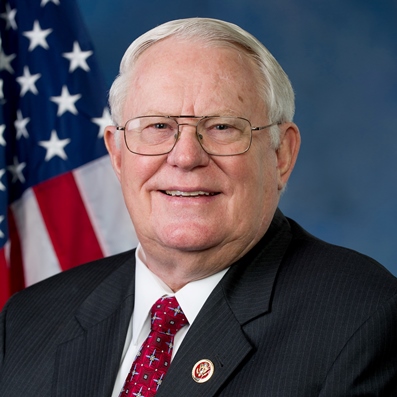
Aiming Wang (王艾明)

“Beginning from about 2008, I came to the definite conclusion that Watchman Nee and Witness Lee are spiritual giants in the history of Chinese Christianity.”
During the ten-year period from 2002 to 2012, I continually studied and read through all of the writings of Watchman Nee and Witness Lee. I have gone over some of their more important writings several times. I have reflected on their writings and compared them systematically with the mainstream theological thoughts formulated by people such as St. Athanasius, St. Augustine, St. Thomas Aquinas, Luther, Calvin, Barth, and Ratzinger.
Beginning from about 2008, I came to the definite conclusion that Watchman Nee and Witness Lee—the founder and the inheritor, respectively, of the indigenous Chinese church, Christian Assembly (a.k.a. the local churches, Assembly Hall, Little Flock)—are spiritual giants in the history of Chinese Christianity.
From the standpoint of theology, the “local churches” founded by Watchman Nee are a unique development in Christianity in China. If we look at the local churches based on the three solas used by Calvin to summarize Luther’s principle of reformation, the local churches correspond exactly to the highest standard set forth by the Protestant church tradition. Hence, this perspective of historical theology accounts for the healthy growth in scope and impact that the local churches have enjoyed since they appeared on the scene. Witness Lee was the leading figure in the development of the local churches outside of China. At present the local churches can be described as the only indigenous Chinese church that has had an international impact as far as world mission is concerned. Surrounding Watchman Nee, Witness Lee, and the local churches founded and developed by them, there have been many misunderstandings and slanders. If we trace these back to their origin and root cause, we, the mainstream Christian denominations, bear an inescapable responsibility to clarify facts and to correct bias.
If the departments in the Chinese government overseeing religious affairs are to truly maintain our citizens’ right to freedom of religious belief as defined by the Constitution, they should restore the reputation of Watchman Nee as soon as possible. At least, they should allow the seminaries under the governance of the two councils [Three-Self Patriotic Movement and China Christian Council] to regard Watchman Nee as one of the fathers in Chinese Christian history and to study his teachings. His voluminous writings should be allowed to be published openly and studied in China.
It is my view that the Chinese Christian church tradition founded and developed by Watchman Nee and Witness Lee (a.k.a. the local churches, Christian Assembly, Assembly Hall, and Little Flock), as a wondrous flowering of the Christian faith in the landscape of the gospel in China, will become the driving force of a spiritual movement.
Dongsheng Wu (吴东生)

“Watchman Nee’s spiritual theology is a masterpiece of indigenous Chinese theology as well as a great contribution to evangelical theology universally.”
Watchman Nee’s spiritual theology is a masterpiece of indigenous Chinese theology as well as a great contribution to evangelical theology universally. Watchman Nee had a very deep understanding concerning the riches of the life of Christ, the revelation in and enlightenment from God’s Word, the distinction between God’s revelation and man’s reasoning, the ruling of the Holy Spirit in a believer’s living, the necessity of the breaking of the life of the self, and the believers’ life of fellowship in the church; he also had a practical way to apply them.
Even though Watchman Nee’s view of trichotomy may not seem to have sufficient basis in ontology, contemporary biblical research is able to support the view that in man’s inclination and function there are three parts: spirit, soul, and body, and the experiences of the saints throughout the generations also match this view. Furthermore, Watchman Nee’s view with regard to the distinction between the functions of the spirit and the mind not only corresponds to the Bible but is also in accordance with the understanding of many important figures in the history of Christian spirituality.
Watchman Nee’s spiritual theology is a great treasure to Chinese theology. It awaits our further mining and practical application to the life and living of today’s believers and the churches.
Paul Young

“…I gained a deep appreciation for the oneness that characterizes the local churches.”
My first encounter with the “Lord’s recovery” occurred in May 1967 as a member of The People’s Church in Toronto, Canada. Oswald J. Smith, the Senior Pastor, had invited his friend Witness Lee to address the annual World Missions Conference. I remember wondering what this short, quiet man who spoke English with a Chinese accent was going to say! His message inspired me to read The Normal Christian Life by Watchman Nee, and I soon realized that for those in North America it was perhaps describing “the abnormal Christian life.” Witness Lee’s wisdom had already begun to impact me.
As a teenager in the Christian and Missionary Alliance Church (C&MA), Avenue Road, Toronto, where A. W. Tozer ministered for a few years, I developed the deep conviction that Christ must be Lord of all, or He is not really Lord at all. I also developed at this time a deep love and gratitude for the great hymns of the Church, many of which providentially found their way into the hymnbook used in the local churches—indeed, thirty-nine of C&MA cofounder A. B. Simpson’s hymns (more than in the C&MA’s own book, Hymns of the Christian Life). Combined with Oswald J. Smith (who has two hymns that he penned in Hymns (LSM)) and his teaching that “no one should hear the Gospel twice until everyone has heard it once,” and that “One in twenty of our members should be engaged in full-time service,” I was a prime candidate for the teachings of Watchman Nee and Witness Lee! Like many believers who have encountered the local churches, however, I also encountered severe critics of the move of the Spirit through these devout gentlemen and was influenced to avoid further affiliations with them or their fellow followers of Christ.
Fast forward to 2003 and the Christian Research Institute (CRI). After many years of distributing literature denouncing the central teachings of the local churches as aberrant, if not heretical—literature that even facilitated China’s imprisonment of disciples within the local churches—CRI, under the leadership of Hank Hanegraaff, initiated an in-depth re-evaluation of the teachings of Witness Lee and the local churches. After several years of intensive grappling with primary sources and personal dialog with countless followers in multiple countries, CRI published an historic 64 page special edition of the CHRISTIAN RESEARCH JOURNAL titled “We Were Wrong.” This publication has been translated into more than a dozen languages, and more than 150,000 copies are in circulation world-wide—the complete magazine is posted on CRI’s website at equip.org/localchurch.
In 2008 I had the privilege to participate in a conference in Jacksonville, Florida, with more than 1,000 believers from various parts of the USA and the world. Leading ones had invited several of my CRI colleagues and me to observe the conference. That experience profoundly moved me, and in those few short days I gained a deep appreciation for the oneness that characterizes the local churches. Upon my return to Charlotte, North Carolina, I immediately sought out the meeting hall of the church in Charlotte and began to enjoy the believers’ fellowship locally. Now four years after the Jacksonville experience I personally am connected with this move of the Spirit of the Lord and share in the worship, witness, and oneness that exemplify the joy of brethren dwelling together in unity.
For several decades I have been very much involved in “church” and have served in many capacities, and have learned and grown much. Now with the added voluntary discipline, I have moved deeper into “church-life” and my joy has increased. As we know, a walk with the Lord is like attending a school from which one never graduates!
“Because life and truth (really) matter,” I am pressing on and running the race more equipped today.
I defer to Hank Hanegraaff, Elliot Miller, and the scholars at the Institute to affirm the doctrinal orthodoxy of the Lord’s recovery. But I can attest to the genuineness of this move of the Spirit on account of the love, joy, and peace of Christ I have personally witnessed and experienced in countless gatherings of the body of Christ throughout this continent and around the world. I have “tasted and seen that the Lord is good.” I have been in homes, in meeting halls, on university campuses, at conferences and conventions, and at full-time training centers. I have traveled from Boston to Beijing; from Taiwan to Texas; from Canada to Chile and it is always the same—“see how they love one another!” “Jesus is Lord!” “He must increase and we must decrease.” To be demonstrating and declaring the unsearchable riches found only in a deep, personal relationship with Christ is the heart-beat of the followers I have met within the local churches. All for the Glory of God—being engaged in the process of lifting up Christ so that all men might be moved from ”lost” to being “found” in Him.
